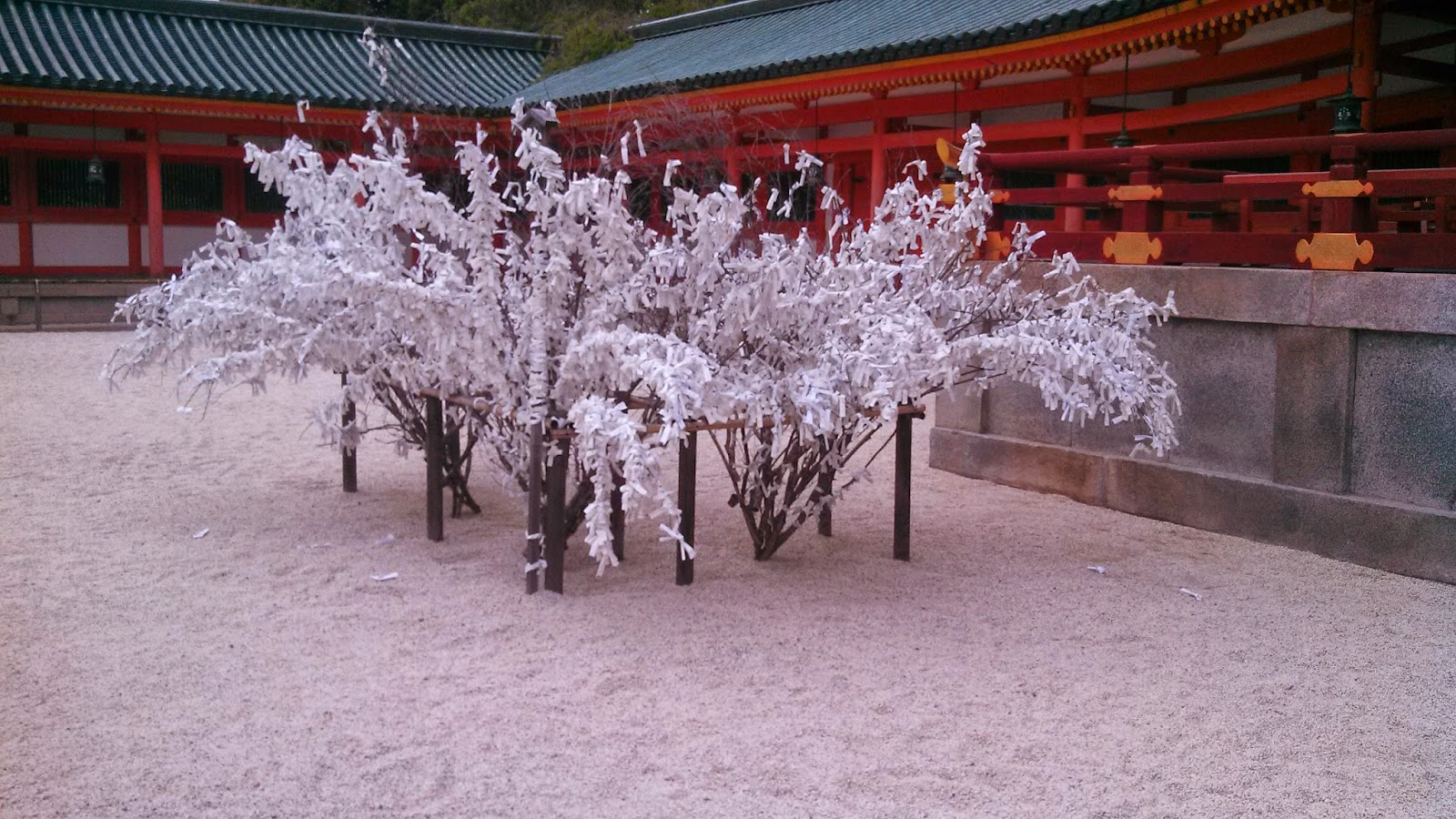While zipping along we got to see Mt. Fuji.
We clocked in at 165MPH!
In Kyoto we took a tour and spent the day at the Nijo Castle, built by a famous Shogun and 5 other shrines and temples. I was glad we were there on a week day, each place was really crowded with school students and tourists from all walks of life and our guide said the crowds were even worse on the weekends, or heaven forbid you came on a festival day! My point is the crowds made it difficult to get good photos.
 |
| Outer Moat at Nijo Castle |
See this grill, there is a room behind there, the wall covering pops out and if you're an enemy standing below you'd be wishing you weren't trying to invade!
 |
| Main Gate at Nijo Castle |
This is a corner building in the front, it would have been a samurai guard house.
 |
| Gate into Living Quarters |
Each one of these carvings and motifs has meaning, either symbolism for keeping the family safe or a direct reference to the family's lineage.
The castle had at least 50 rooms, I lost count, we were allowed to tour them but not photograph the interior which was a bummer because of the ornate paintings. Each room had beautiful murals of nature scenes, a few were original but most had been restored.
 |
| Bells in front of the Samurai Garden |
The Japanese have many types of traditional gardens. This is an example of a Samurai Garden, they loved open spaces with huge boulders surrounding a body of water with, of course, a waterfall. To enjoy it they would have walked through the grounds or rowed in a boat out on this lake.
Our next stop was the Kinkakuji Temple, a very peaceful and beautiful place.
Kinkakuji is best known for cow statues, touch the cow's head and make a wish! This is popular with students who want to do well on their entrance exams.
Again everything you're looking at is not just decorative but has meaning. Each are beautiful works of art.
Our next stop should have been the Kyoto Imperial Palace but it was closed due to parade preparations for the following day. Instead we visited the Kitano-tenmangu Shrine, sorry no photos! Than we got to relax and eat a typical Japanese style lunch, the tempura was delicious!
Back on the bus we resumed our afternoon tour with a visit to the amazing Golden Pavilion or the Kinkaku Rokuon-ji Temple. It's a shariden, a Buddhist hall containing relics of Buddha. Like many of these temples and shrines it too has a long history of being built, being destroyed by a fire and being rebuilt, and often times moved to a new location and rebuilt. This shrine is fairly new, it was built on this ancient site in 1955.
I really should have cropped this photo, sorry! This was about the best shot I could get, DH's head and strangers! It is an amazing building, covered with 20 kilograms of gold foil lacquer. The first floor was built in shinden style of the 11th century, the second floor was built in the buke style of the warrior aristocracy and the top floor is in the Chinese zenshu-butsuden style, perched on the very top is a Phoenix! Overall Kinkaku is representative of the Muromachi period architecture.
We followed the path around The Golden Pavilion and saw these beautiful sites.
This is an evergreen tree that has been shaped like a boat!
Our next stop was the Japanese National Treasure: Sanjusangen-do. And a real treasure it was, absolutely stunning. I have photos of the outside only, we were not permitted to photograph the interior where the real treasure lay, 1001 statues of Buddhist deity, some dating back to the 12th century. Visit this SITE to see the actual photos.
Wishing trees! Each piece of paper has someone's wish!
And our last stop was at Kiyomizu Temple.
Perched way up on a hill it was tinier than it appears!
 |
| A view of Kyoto from Kiyomizu |
To reach Kiyomizu we had to walk up and up through winding streets of shops, this is a candy making machine in one of them!
After this our long day of touring was over but we still had a 2 hour train ride back to Tokyo, luckily it was fast.































2 comments:
More awesomeness! I love seeing the temples and gardens. :)
Thank you once again Laurel, its great to see that at least one person is reading my blog!
Post a Comment